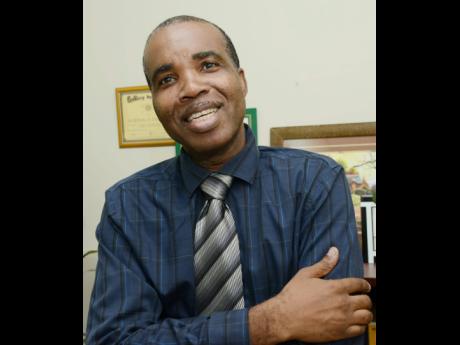Everald Dewar | Taxation of fuel benefits
A client, a small one-man company, recently received a letter from Tax Administration Jamaica, TAJ, concerning fuel benefits given to the director.
The director is using his own vehicle for business purposes. He charges all his fuel to his credit card, and the company then pays his credit card bill.
The letter implied that since the car was not provided by the company for use by the director, the fuel benefit is not a tax-free allowance.
Where an employee is provided with a fully maintained vehicle that includes fuel and maintenance, this is a benefit in kind that is taxable. This benefit is assessed using pre-ordained values contained in a table in the Income Tax Act. If there is no car benefit, there is no fuel benefit as they cannot be separated. The values from the table cover both.
If the employee owns his own vehicle and the employer pays for motoring expenses such as repairs and insurance, these are taxable in the same way but using different criteria than the table values, involving taxing the actual price paid.
Our director holds an office which is similar to being in employment, and fuel is provided to him by reason of this office. What is happening is that the company pays for the total fuel bill, effectively reimbursing the director with the cost of both his private and business fuel and hence settling a personal liability of the director, making the reimbursed amount taxable as a benefit in kind.
Unfortunately, in the director’s case, the fuel was reimbursed in full ,and where an employee reimburses the cost of business and private fuel to an employee, there is a ‘pay as you earn’, or PAYE, liability.
TAJ is effectively saying that as a private benefit is also being paid for in this case, their aim is to assess the private element, but in doing so, they may also end up assessing the business element.
What if the credit card belonging to the company was used to pay for the fuel, wouldn’t it then be the company that pays the expenses and not the director? The answer is yes, but it does not change the fact that the company would have paid a bill on behalf of the employee.
The alternative could be for the employee to pay for his fuel personally then make a claim on the company, but this is what was happening in the director’s case. Therefore, the mode of repayment is not the issue but rather the fact that a private benefit would have been paid for.
The reality is TAJ is not only concerned about private benefit but mainly about employers making payments that may include amounts not made for motoring in the performance of the employees’ duties but making part of their employees’ salaries artificially dressed up as reimbursements for business travel.
Against that background, it is best to seek TAJ’s agreement, by way of an application, for an allowance to be paid at fixed pre-established rates to the employee for the use of his vehicle. These rates are usually published under a scheme granting a special dispensation that the employee receive amounts tax-free. The rates involve both upkeep of the vehicle and, in some cases, the gas used per business mile. They normally apply to employees whose duties require them to travel and who have access to a motor vehicle.
However, if employees are required to travel but do not have a motor vehicle and depend on public transportation, the application can be made for a commuted or walk-foot allowance to be paid.
If the employee calculates that his actual cost for business use is higher than that granted under the scheme, he may just have to make a claim for the balance by filing a tax return.
Although, it is not usual that employees who do not have income outside their employment file tax returns; this is the only way they can obtain relief for the excess. When preparing the return, they would need to take into account the tax-free allowance received under the scheme.
If he is the owner of the vehicle, claiming a portion of the capital allowance can be justified. There has been an increase in capital allowance that can be claimed on private motor vehicles, such as cars and SUVs, purchased after 2013.
If the return is for a tax refund, the vehicle owner should be prepared to defend this claim.
Everald Dewar is senior taxation manager at BDO Chartered Accountants in Kingston.


